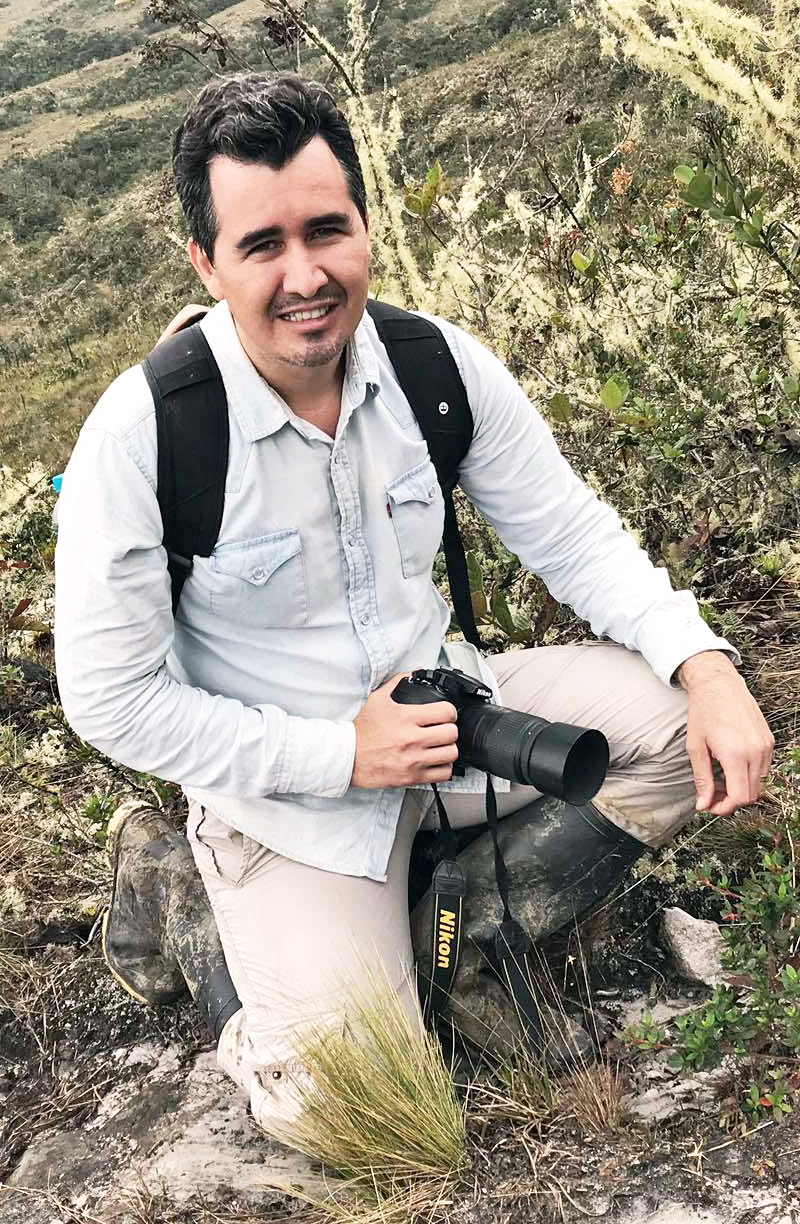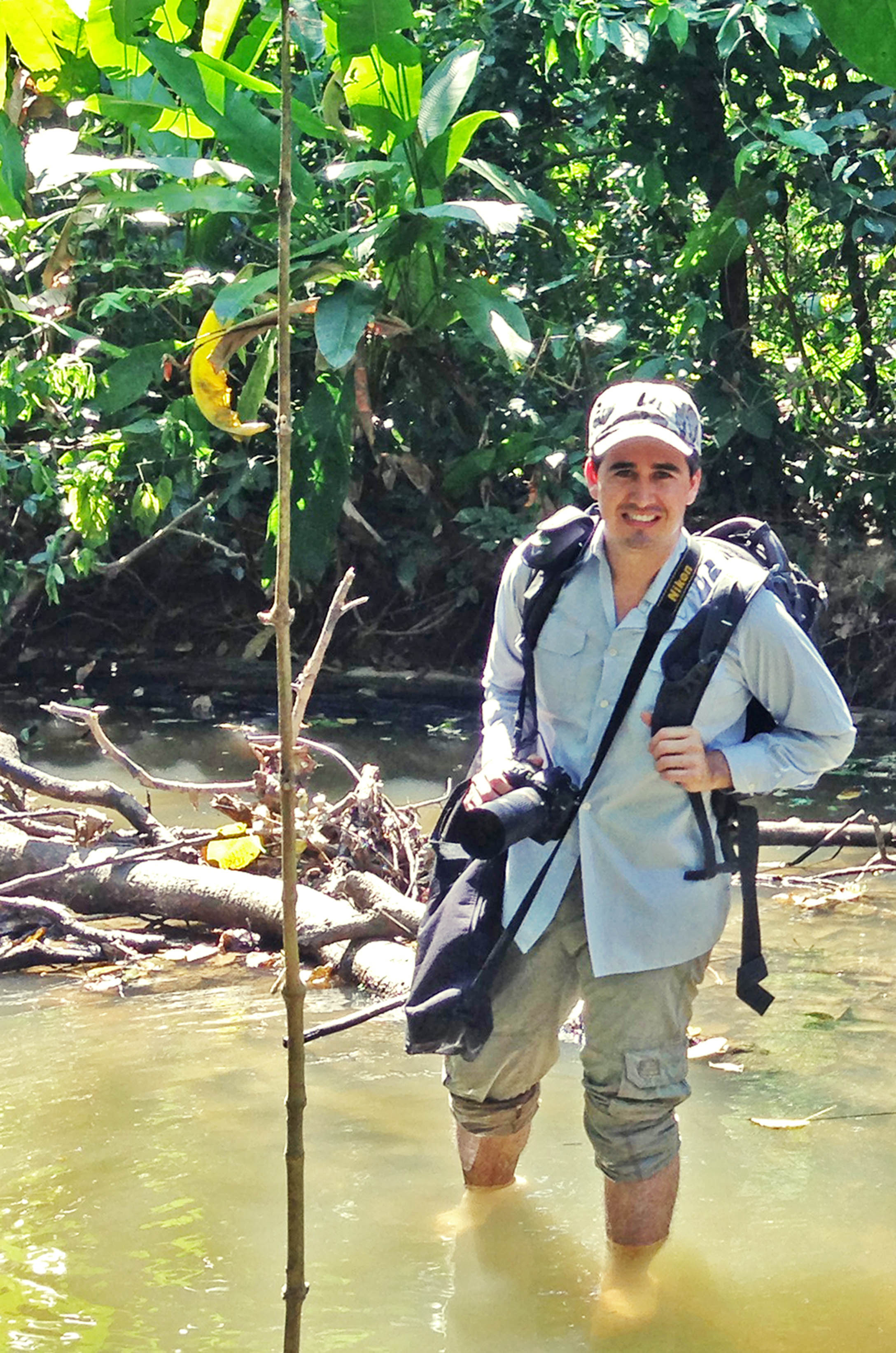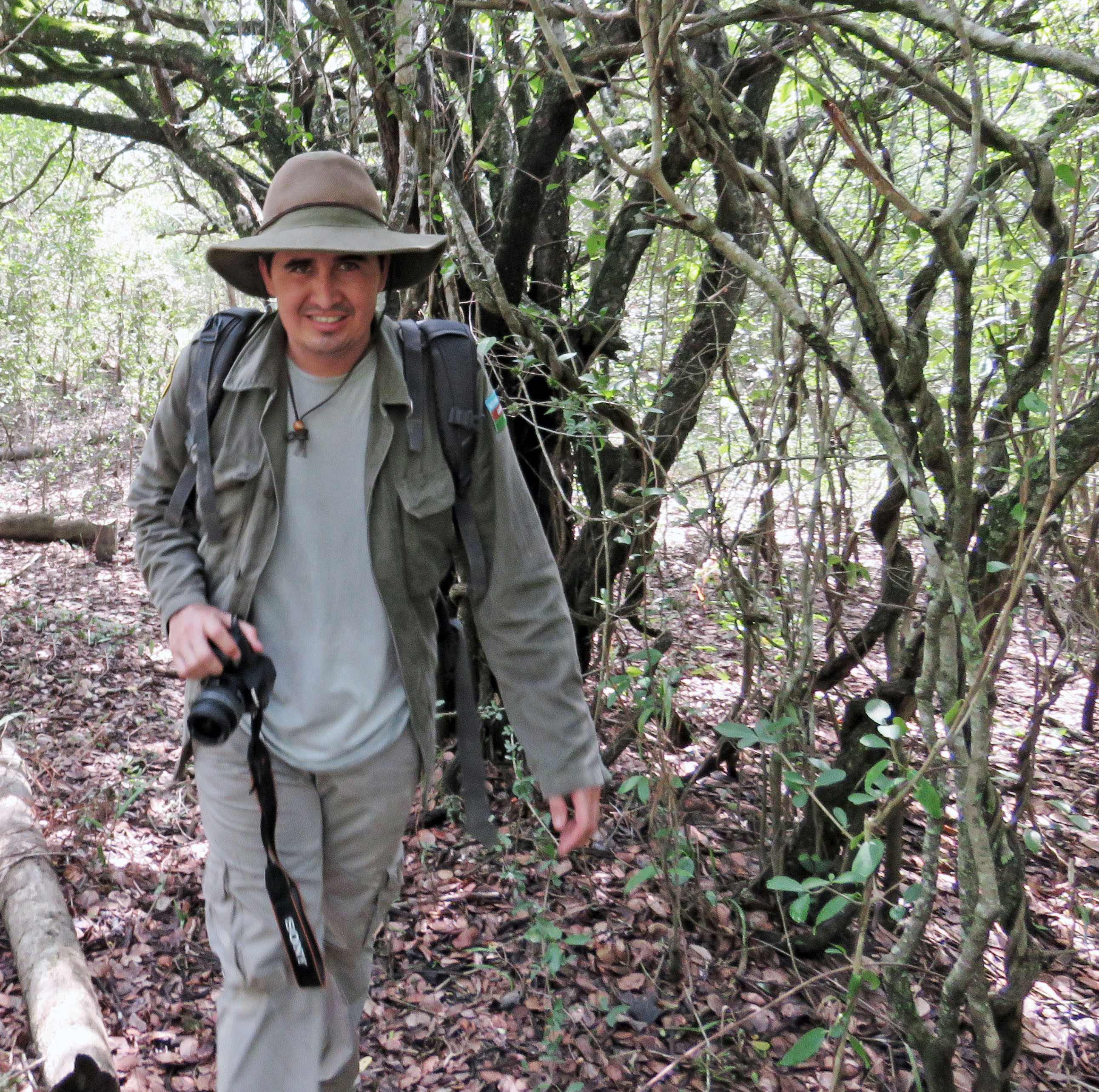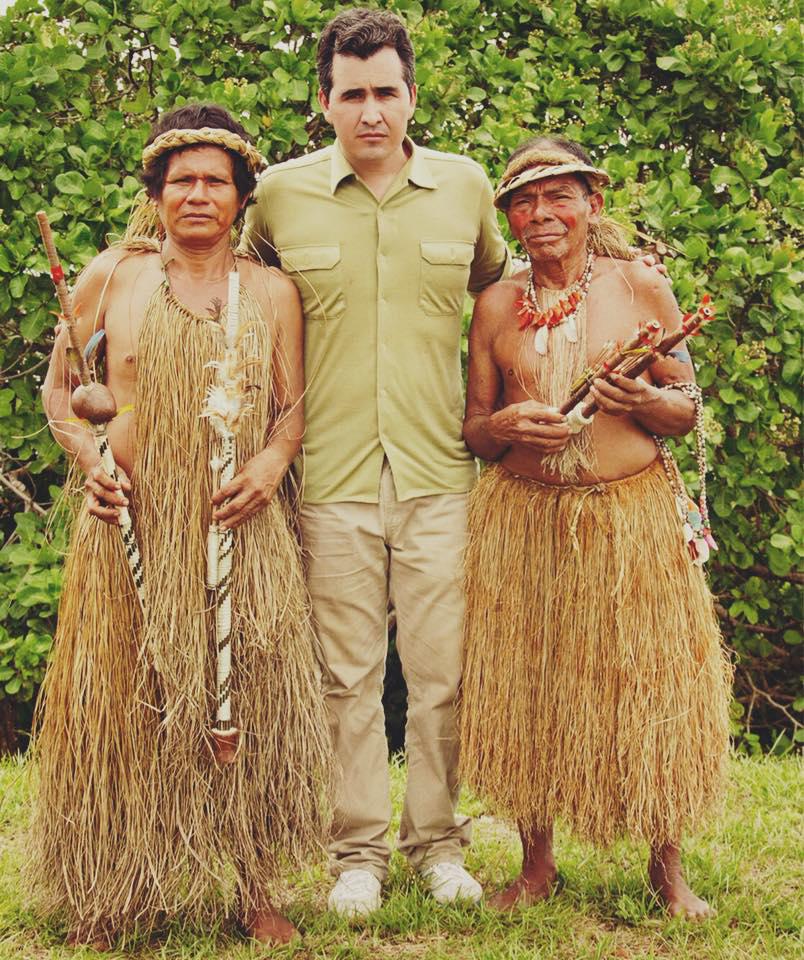From a young age, Eduardo Franco Berton had a passion for wildlife and nature. He would spend hours reading entire animal encyclopedias.
“My mom used to bug me about watching documentaries, the Discovery Channel and National Geographic, and climbing trees to watch birds,” said Berton.
He originally started off as a lawyer, specializing in environmental law working for conservation organizations.
“The change from being a lawyer to becoming a journalist was a short jump in my career,” he said. “Soon after I started working as an environmental lawyer, I also started writing in my free time for media outlets. I also discovered another passion, which was photography.”
In 2016, Berton launched Red Ambiental Info (RAI) Bolivia, a digital news outlet that focuses on environmental conservation and science throughout Latin America.
“I manage the project, which means participating in conferences and panels, [and] getting in touch with donors,” he said. “All that work that always gets forced on you when you are an entrepreneur.”
He also spends a lot of time editing the RAI Bolivia’s stories and contributing to outlets such as Mongabay, National Geographic, and O Eco.
We spoke to Berton about his work in environmental journalism, the challenges he’s faced, and his advice for emerging journalists.

IJNet: How has IJNet helped your career?
Berton: I have always [used IJNet] to keep track of journalism conferences and projects being launched around the world with a focus on Latin America. Last year we applied for support from an organization called the National Endowment for Democracy, which is based in Washington, and we found that granted opportunity through IJNet.
Thanks to that support, we will do investigative journalism over the next year focused on environmental and Indigenous topics, which are some of the issues we cover.
[Read more: Tips for journalists interested in cross-border collaborations]
What did you learn at the conferences you have attended?
I think they are a great opportunity to expand our networks. I take a lot of opportunities to meet other journalists, to expand my professional network, and to find new projects with other journalists. Also, it's a great opportunity to present the work we are doing with our project in Bolivia.
[They offer] space to talk about and expose different issues that are affecting our region and our country. There's a lot of environmental devastation happening in Bolivia and in Latin America, so we go and organize panels about the Amazon, for example, or deforestation, climate change, or Indigenous rights.
We are part of the Global Investigative Journalism Network (GIJN), and we went to the conference in Johannesburg, South Africa in 2017. Last year it was in Hamburg, Germany. We spoke on panels, and it was a great opportunity to learn new investigative skills. The conferences are a very important space to go and learn from what our colleagues are doing.

What work are you most proud of?
In 2018 we published an investigative report about Jaguar trafficking in Bolivia, Peru, and Brazil. That investigation took us almost four months of research. We had to travel to Peru, to Brazil, and to different places in Bolivia. We also produced short documentary films, photographs, and narratives about that situation on Jaguar trafficking. It was very tough to research.
Last year it was chosen among the best investigative reports in Latin America, by La Conferencia Latinoamericana de Periodismo de Investigación (COLPIN), which is the Latin American Investigative Journalism Conference. It's considered one of the most important awards in Latin America and investigative journalism, and we got an honorable mention.

[Read more: Environmental journalists face threats, violence]
What are some challenges that you’ve encountered?
I would say it's one of the hardest types of journalism. It's not easy anywhere, but in Latin America specifically, there's a lot of issues to carry with environmental journalism.
There's a lot of pressure when you report on these uncomfortable topics that will reveal environmental devastation because there's a lot of actors in these environmental practices. And there's always the government with some type of involvement. The government is always there. There are also private companies, big enterprises, and other countries as well. When you do investigative reporting on environmental topics, it could be risky if you expose wrongdoing or corruption
When doing wildlife trafficking reporting, I once had to deal with a death threat because there are also criminal networks involved in environmental devastation. You have to be very careful with where you go, and how you conduct your research.
What is your advice to emerging environmental journalists?
If you have a particular interest in a specific field of journalism, I think it's important that you invest time in acquiring knowledge and skills [in it]. These will help to improve your reporting. It will also help you to find different angles for stories and topics you would like to cover so that you can acquire knowledge and skills on the type of journalism that you are interested in.

All images courtesy of Eduardo Franco Berton.

